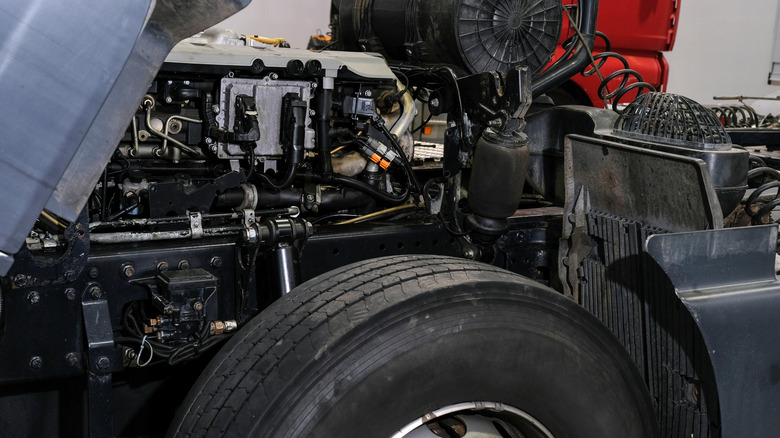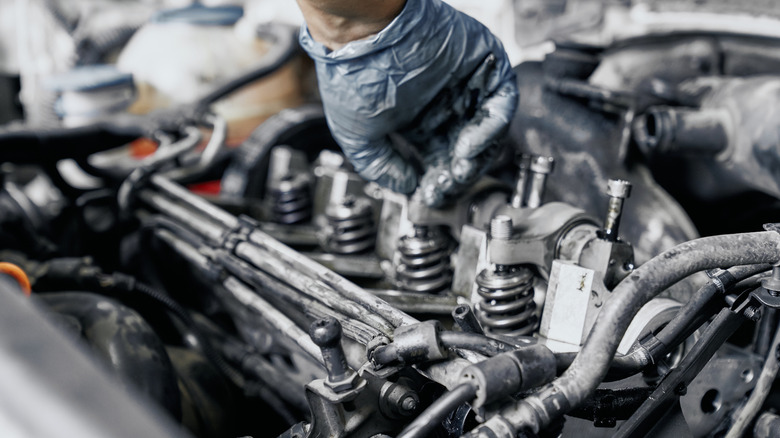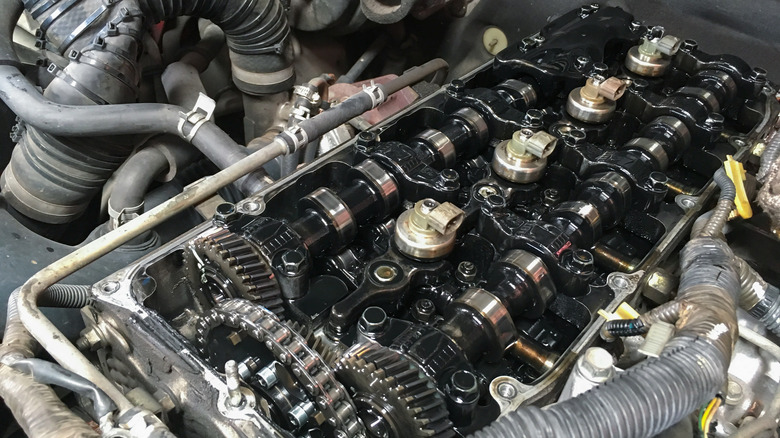What Does Cetane Booster Do For Diesel Fuel And How Much Should You Use?
We may receive a commission on purchases made from links.
Like any vehicle owner, you may have wondered if you can enhance your car's engine without having to modify your vehicle to the extreme. Sure, you spend a bunch of time and money installing a cold air intake or supercharger to gain extra horsepower. But what if you didn't have to go through all that? There are ways to boost your vehicle's performance without necessarily breaking the bank or even opening your hood. Enter gas and diesel additives, which not only can boost your vehicle's output but also reduce harmful emissions, increase fuel efficiency, and even clean the fuel system. Cetane boosters for diesel engines kick up the cetane number of a diesel blend, but what is cetane and what does a cetane number tell us?
Cetane, or hexadecane, is a highly flammable chemical compound found in diesel fuel. Cetane number measures the delay between the time diesel is injected into the chamber and the time it combusts. If the fuel has a high cetane number, it will ignite faster. If the number is low, the ignition process will take longer. This reduces power and efficiency and can lead to engine wear. Using a cetane booster increases the quality of the fuel, which can mean more steady power for your vehicle. However, like most things in life, too much can be harmful and might make your engine run worse. Exactly how much to use will depend on which cetane booster you choose.
How much cetane booster should I use?
If you need to use a cetane booster, first check the product instructions, as each brand has specific guidelines. For example, Hot Shot's Secret recommends one to two ounces for each 25 gallons of diesel fuel. Archoil says a 10.1-ounce bottle treats up to 100 gallons of fuel, while Diesel Kleen advises using 12 ounces for 40 gallons. Adding too much cetane booster to your fuel might alter its density, which will negatively affect your motor's power output. Cetane boosters are especially helpful in cold weather, when diesel engines often struggle.
Diesel engines run on compression ignition, which helps them produce massive amounts of torque. Air is drawn into each cylinder and compressed by the piston, raising its temperature to hundreds of degrees Fahrenheit. Diesel is then injected into the cylinder, igniting instantly due to the hot air. The force generated by the reaction drives the pistons down, which in turn rotate the engine's crankshaft. A few factors affect the efficiency of the process, one of which is the cetane number of the fuel used.
How is cetane number measured?
Cetane numbers are different from the octane ratings used for gasoline that measures those fuels' anti-knock properties. Cetane number is calculated by measuring the amounts of cetane and poor-burning isocetane in a fuel blend. Pure cetane is rated at 100, and isocetane at 0.The test fuel is run through a single-cylinder engine with a controlled compression ratio and compared to a set of reference fuels.Cetane number is standard across the world, and different countries have specific standards for their diesel measurements. The United States Environmental Protection Agency has set a minimum cetane index of 40, although individual states can establish higher standards. For example, California has set a minimum cetane number of 53.
As of 2023, all diesel fuel sold in the European Union must have a minimum cetane number of 51. Knowing how important cetane is to an efficient engine, why aren't those numbers higher? Above about a cetane number of 55, the benefits start to drop off sharply. Burning diesel fuel with a higher cetane number can throw off the balance of the fuel composition, causing excessive engine deposits. It's also a waste of money beyond a certain point.


